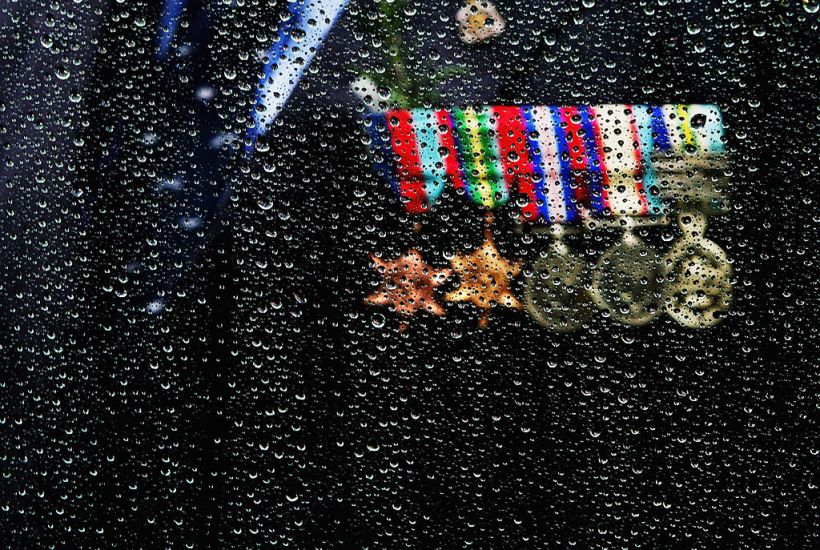Anzac Day is stocktaking day for the national consciousness. It’s a special day; a time for Australians not only to reflect on sacrifices made but on our relationships with each other and what it means to be Australian. It’s a day to remember that the blood of many young Australians has been needlessly spilt to serve or to counter the vanity of Empires and ideologies.
However, with clear vision and integrity of purpose, we can give meaning to the so much futile loss. We ennoble their sacrifice if we learn from their experiences, thus building the Australia in which they believed and for which they died.
Those who cannot learn from the lessons of history are doomed to repeat its mistakes. Yet we must be mindful that the victors write that history.
My generation grew up inculcated with the inhumanity of the Nazis, the brutality of the Japanese, and the encroaching scourge of communism. Throughout our history Australia had always, we believed, fought on the side of right.
There was no possible reality in which the motives of our leaders were less than noble and pure. They would never condemn the flower of our youth to death in foreign fields in other than the highest and most urgent cause.
“Freedom’s sons” believed them. They answered the call in droves. They were sacrificed in their thousands, dying while self-serving politicians and grossly incompetent generals kept well out of harm’s way
We thought we learnt. After World War I, a proscription against attacking and killing civilian non-combatants, even in times of war, was agreed. However, within twenty years Guernica was bombed into oblivion by the Luftwaffe. We don’t hear as much about the many cities, both large and small, which were virtually destroyed by Allied bombing. Cologne, Berlin, Hamburg and Dresden are among the most infamous.
In the Pacific, civilian bombing was used extensively against Japanese population centres. In just one night, over 100,000 people burned to death from a bombardment of incendiary bombs. By the time of the dropping of the atomic bombs, over 400,000 Japanese civilians had died and millions had been made homeless. Total American casualties in the Pacific numbered around one hundred thousand. The practice was continued in Vietnam.
We do the Anzac tradition an injustice unless we fail to acknowledge our own failings. Yet at a much more personal level, too, we fail the Anzac tradition.
Indigenous service personnel will lead this year’s national commemoration ceremony. Though official policy proscribed their enlistment, in the First World War over a thousand are known to have served. True to the Australian tradition of “a fair go” and “mateship”, they served on equal terms.
Never the less after the war, in areas such as education, employment, and civil liberties, Aboriginal ex-servicemen and women found that discrimination had worsened. Only one is known to have received land in New South Wales under a “soldier settlement” scheme, despite the fact that much of the best farming land in Aboriginal reserves was confiscated for soldier settlement. The repression of Indigenous Australians increased between the wars, as protection acts gave government officials greater control.
In 1945, the world would be revolted by the genocide of the Holocaust. Yet, as Hitler was rising to power, Indigenous Australians were being massacred in reprisal raids. Genocide is not unknown here.
Neither is discrimination. Indigenous Australians who fought for their country came back to find themselves barred from Returned and Services League clubs, except on Anzac Day. It was not only Aborigines.
Australia interned almost 7000 people during World War 1. Of those, about 4500’s only “crime” was to be Australian citizens of German ancestry. During World War II Japanese residents were interned en masse. Germans and Italians were also interned on the basis of nationality. More than 1500 were Australian citizens.
Such actions shame the thousands who died to defend ANZAC ideals.
We cannot erase the past. However, we can honour them with the Australia that we now build.
On the eve of Anzac Day, one of our more vocal politicians was on “Sunrise” saying ”We don’t want Muslims here.” In denigrating an entire group because of their Faith, he follows the Nazis’ path.
Hopefully, most Australians honour the Anzac Spirit, “Lest we forget.”
Mark Brindal is a former South Australian Liberal minister, an academic, public policy consultant and commentator.
Got something to add? Join the discussion and comment below.
Got something to add? Join the discussion and comment below.
Get 10 issues for just $10
Subscribe to The Spectator Australia today for the next 10 magazine issues, plus full online access, for just $10.


























Comments
Don't miss out
Join the conversation with other Spectator Australia readers. Subscribe to leave a comment.
SUBSCRIBEAlready a subscriber? Log in